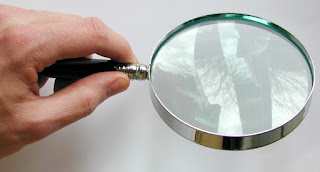How To Gain Knowledge Easily?

In the last post, we discussed some of the ways to investigate the reality aka., means of gaining knowledge. In this post, we will discuss the easiest of them. The three ways of gaining knowledge as discussed earlier are - Direct Perception (Shabda Pramana) Inference (Upmana Pramana) Testimony (Shabda Pramana) In another earlier discussion, we also saw that direct perception is not very reliable . Similarly, an inference can also be wrong. A classic example of misconception is the example of a rope in a dark room. When we step onto a rope in a dark room we may infer it as a snake. We get terrified but as soon as we find the reality all our fear goes away. This is one of the limitations of gaining knowledge by inference. Scirptures are easiest way to gain Knowledge Testimony is considered the easiest and most accurate method of gaining knowledge. Scriptures are considered the most authoritative easily available testimony of the nature of reality. Scriptures are not

